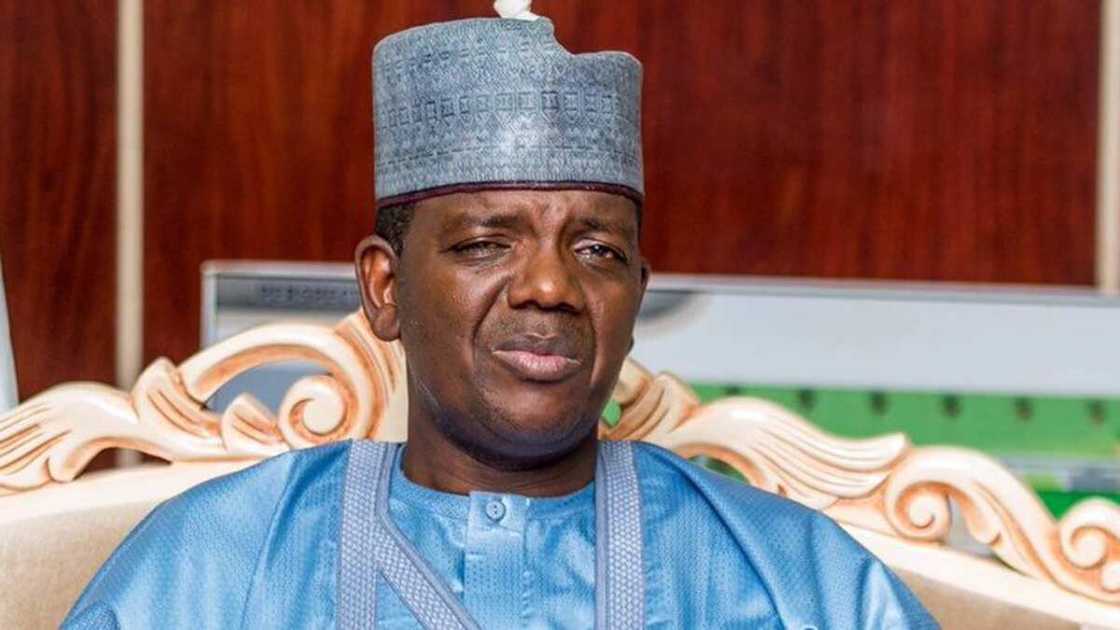OPINION: Zamfara’s Ship Without Rudder: No Focus, No Direction! By Suleman Tukur
Editor's note: Suleman Tukura, a public affairs commentator based in Samaru, Gusau, the Zamfara capital, writes on what he called the rudderless leadership in the northwest state on the watch of Governor Bello Muhammad Matawalle.
It was never this bad on matters of governance in Zamfara state. I am looking at governance from a managerial lens of Henri Fayol's 14 Principles of Management number twelve and thirteen (12 & 13): stability of tenure of personnel and initiative.
Stability of tenure of personnel is a principle which states that for an organization to run smoothly and achieve its short and long terms objectives, personnel (especially managerial personnel) must not frequently enter and exit the organization. Consequently, an organisation must take steps to obtain as much stability in its management and workforce as possible. Change and disruptions are often expensive in both time and resources.

Source: Facebook
Employees work better if job security and career progress are assured to them. An insecure tenure will affect the organisation adversely. This principle is applicable to our modern-day administration and political leadership as it applies to organisational management.
Zamfara state government under the current dispensation has not constituted its executive council until December 2019 seven months after swearing-in. Two months later in February 2020 additional 3 ministries were created which brought the total number of ministries in the state to 22, one year and four months later between March and April 2021 there was a partial cabinet reshuffling, and the directorate of humanitarian affairs was upgraded to full-fledged ministry. There was also major redeployment of permanent secretaries in February and August 2021 respectively. Furthermore, there was the sacking of special advisers and director-generals as well as the reinstatement of some in June 2021. There was the dissolution of all political appointments including executive council members and reappointment of some in August 2021. All these happened within the span of one year five months from the date of their first appointment.
PAY ATTENTION: Join Legit.ng Telegram channel! Never miss important updates!
On 6th June 2020, the state government dissolved local government councils chairmen through the resolution of the state House of Assembly citing problems of insecurity amongst other reasons. However, to contradict themselves, they retained them as sole administrators except a few who refused to decamp to their party PDP then. The sole administrators were retained for one year in two consecutive tenures of 6 months each. Our local governments were without council chairmen (electives or sole administrators) for four months since when they were sacked in June this year until when another set of local administrators were appointed in October 2021.
Upon all these, since the inaugural meeting of Zamfara state executive council in December 2019, the council sat only once and the discussions of the meeting focused on how to investigate the expenditure of the previous administration; no discussions pertaining to the progress and development of the state. Furthermore, on 2nd December 2020, Economic Management Team was inaugurated with a mandate to turn around the economy of the state but till today nothing is coming from the committee as the committee is only present on paper.
There was neither induction nor retreat organised for the government appointees especially politicians, which is why most of them don't know what to do because they lack managerial know-how to run their respective establishments. Those with knowledge and skills were not supported with resources to execute their initiatives.
The Henri Fayol principle 13 is "Initiative". By this principle, the executive officer (The governor) should support and encourage the employees to take initiatives in an organization. Without limits of authority and discipline, all levels of staff should be encouraged to show initiative. That is, they should encourage the employees to make their own plans and to execute these plans. This is because an initiative gives satisfaction to the employees and brings success to the organisation. It allows the subordinates to think out a plan and do what it takes to make it happen. The governor obviously has no strategy; he is neither here nor there; he has no time to meet with his appointees to discuss issues of concerns to the state and way forward.
Leaders that are hungry for success are focused and not deterred by praise singers or critics; they are determined to achieve something great. Some leaders are being motivated by commendations and constructive criticism, when you praise them, they will do more likewise when you criticize them constructively. Others are motivated by criticism alone; if you praise them, they become reluctant to do more, while some are motivated by praise alone if you criticize them, they become reluctant to do more. But ours is not motivated by any, if he is praised, he feels doing more than he should do and become reluctant to do more. If he is criticised, he became jittery and feels unease.
Owing to the above, I have to recall McClelland's Human Motivation Theory to enable me to understand how to motivate the Governor. David McClelland (1961) in his book "The Achieving Society" states that every person has one of three main driving motivators: the need for achievement, affiliation, or power. These motivators are not inherent; we develop them through our culture and life experiences. Achievers like to solve problems and achieve goals; those with a strong need for affiliation do not like to stand out or take risks, and they value relationships above anything else; those with a strong power motivator like to control others and be in charge. I ended up placing the governor under McClelland need for affiliation bucket: it might be receiving decampees or being a decampee himself as his greatest motivation.
Disclaimer: The views and opinions expressed here are those of the author and do not necessarily reflect the official policy or position of Legit.ng.
Your own opinion articles are welcome at info@corp.legit.ng— drop an email telling us what you want to write about and why. More details in Legit.ng’s step-by-step guide for guest contributors.
Contact us if you have any feedback, suggestions, complaints, or compliments.
Source: Legit.ng







